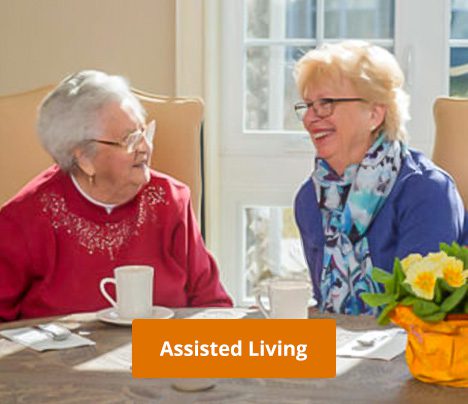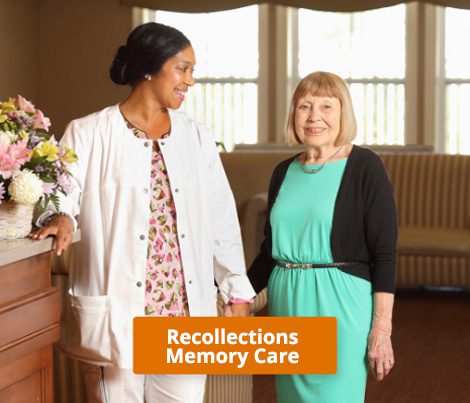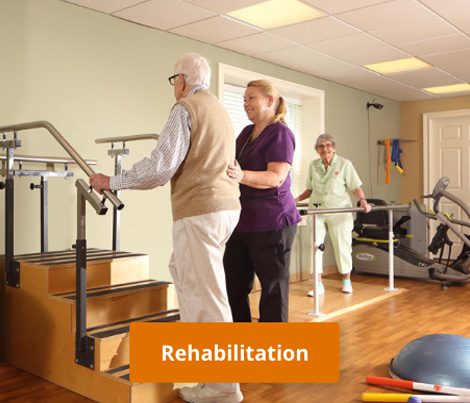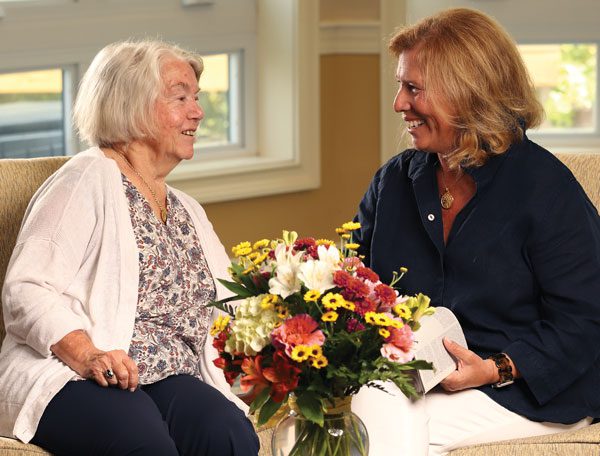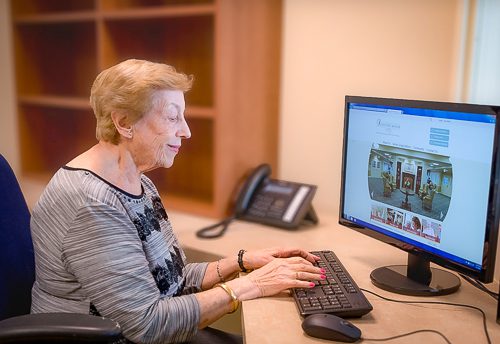How Do I Start the Conversation About Senior Care with My Parents?


The conversation around senior care is often a sensitive subject for families, especially if you’re talking to an older loved one. When is it time to begin the conversation? How will my loved one react? How do I even bring it up?
This depends on your loved one’s situation. Have they already experienced a health event that requires a higher level of care? Does your loved one often talk about loneliness, or are they more isolated than they used to be? Do they seem depressed? Does the housework seem to be overwhelming, or perhaps the yard is becoming too much of a hassle? Are they safe at home?
If the answer to any of these is yes, or if you’re thinking about on-going care to prevent an event such as a fall or an illness, it may be time to have “The Talk.”
Look for Ice Breakers
Looking for opportunities to bring up a sensitive topic like this can be tough, but there are a few ways you can break the ice.
First, don’t come into a visit by diving straight into this conversation—remember to enjoy your time together and to have fun, while taking this as an opportunity to observe where your loved one is in their life. Waiting may also provide a more organic introduction to The Talk, such as an instance where you’re talking about your parent’s home: “How’s the house? It must be hard to keep this place in good shape.”
Ask a friend in your parents’ social circle who may be in a similar situation. Is that friend thinking about moving into a senior community? Have they already moved? Ask your parents how they feel about it and what they might do.
If your parent has already experienced a health event, such as a fall or a hospitalization, your opportunity is here. It may be hard, especially with a recovering loved one, but having the conversation about their safety and recovery is vital at this point. Sunnyside Manor offers a range of services to help older adults recover from and manage injuries and illnesses.
You must still be open-minded and willing to have a two-way conversation—simply “telling” your parent that they’ll be looking at senior living communities with you may result in misunderstood intentions and hurt feelings. Remember that you want to offer support and care, not just problem-solve.
Be Sensitive
No one really enjoys being told what to do, so having a discussion rather than giving orders is one way to be sensitive to the issue. Suggesting that they move into an assisted living community or even explore in-home care can seem like a loss of independence and an invasion of privacy, so remain sensitive to the possibility that your parent may be less than welcoming of this conversation, even if they brought the topic up on their own.
Remember to keep a spirit of respect and empathy; change can be difficult for people, especially when it comes to acknowledging that we’re aging, and with aging comes change. Adjusting to new realities can be difficult. This conversation should emphasize that your loved one’s well-being and happiness are of the utmost importance.
The decision to move into a senior community probably won’t happen overnight. This will most likely be an ongoing dialogue where you and your parents revisit the topic several times before deciding, so it’s important to take your time and to allow them to take their time. Unless the situation is critical, and a decision needs to be made immediately, trying to rush your parents into anything often results in resistance purely out of principle.
Show Active Interest in Their Feelings and Concerns
Don’t brush off any concerns or resistance that might come up during this conversation. It’s important that you remain calm, collected, and open to how your parents might feel. Invalidating their feelings, be it a loss of independence or fear of a new community, may close the door to further conversations on senior living communities. If your parent isn’t willing to participate in the conversation, it may be a better option to drop the subject and come back to it later.
If you’re facing a good deal of resistance, remember that for aging adults, it can be frightening to talk about and plan for a future that may include illness, mobility challenges, and cognitive decline. Once you understand the source of resistance, you’re in a better position to help in a caring and gentle way.
If you’re still meeting resistance, it may benefit you to have your parents speak with a friend or family member who has made the move. Ask that person to talk to your parents about the process, what they can expect, and how they feel about their new senior community. For some, hearing it from a third party might lend more validation and reassurance, especially if that party has already experienced something similar. If your parent has a doctor they see regularly, a conversation with that doctor may go more smoothly. Sunnyside Manor also has staff onboard who can help facilitate a conversation about moving to a senior living community.
Don’t Make Them Go It Alone
Change, in general, can be scary, especially when you feel like you’re alone in that change. Remind your loved one that you will be with them every step of the way—from tour to move. Sunnyside Manor schedules tours both online and over the phone, so you can go with your parent to explore an award-winning senior community that prides itself on both independence and quality of care.
After touring, ensure your loved one that you are there to do whatever you can to help and support them, be it with the move or with accessing services such as memory care or rehabilitation.
The all-new Sunnyside Manor, located in Wall NJ, is the area’s premier senior living community. It features three distinctive neighborhoods: Independence ‘Plus’ Assisted Living, Recollections Memory Care, and Skilled Nursing.


